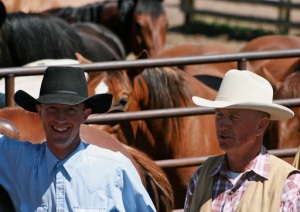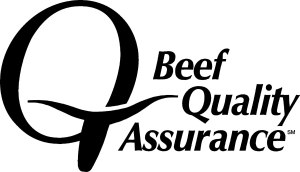Science Does Not Support International Agency Opinion on Red Meat and Cancer
 An international committee assigned to review all of the available evidence on red meat and cancer risk were divided on their opinion whether to label red meat a “probable” cause of cancer, according to the Beef Checkoff nutrition scientist and registered dietitian who observed the International Agency for Research on Cancer (IARC) process. After seven days of deliberation in Lyon, France, IARC was unable to reach a consensus agreement from a group of 22 experts in the field of cancer research, something that IARC has proudly highlighted they strive for and typically achieve. In this case, they had to settle for “majority” agreement.
An international committee assigned to review all of the available evidence on red meat and cancer risk were divided on their opinion whether to label red meat a “probable” cause of cancer, according to the Beef Checkoff nutrition scientist and registered dietitian who observed the International Agency for Research on Cancer (IARC) process. After seven days of deliberation in Lyon, France, IARC was unable to reach a consensus agreement from a group of 22 experts in the field of cancer research, something that IARC has proudly highlighted they strive for and typically achieve. In this case, they had to settle for “majority” agreement.
“Cancer is a complex disease that even the best and brightest minds don’t fully understand,” says Shalene McNeill, PhD, RD. “Billions of dollars have been spent on studies all over the world and no single food has ever been proven to cause or cure cancer. The opinion by the IARC committee to list red meat as a probable carcinogen does not change that fact. The available scientific evidence simply does not support a causal relationship between red or processed meat and any type of cancer.”
Most scientists agree that it is unrealistic to isolate a single food as a cause of cancer from a complex dietary pattern further confounded by lifestyle and environmental factors.
“As a registered dietitian and mother, my advice hasn’t changed. To improve all aspects of your health, eat a balanced diet, which includes lean meats like beef, maintain a healthy weight, be physically active and, please don’t smoke,” says McNeill.
While IARC represents a select group of opinions, it doesn’t always represent consensus in the scientific community.
A large meta-analysis, published online in May in the Journal of the American College of Nutrition, analyzed the relationship between red meat intake and risk for colorectal cancer and concluded “red meat does not appear to be an independent predictor of CRC risk,” according to Dominik Alexander, PhD, MSPH, the epidemiologist who conducted the research on behalf of the Beef Checkoff.
“There are a constellation of factors that are associated with the probability of getting cancer, which include age, genetics, socioeconomic characteristics, obesity, lack of physical activity, where you grew up, alcohol consumption, smoking and even your profession,” says Alexander. “The bottom line is the epidemiologic science on red meat consumption and cancer is best described as weak associations and an evidence base that has weakened over time. And most importantly, because red meat is consumed in the context of hundreds of other foods and is correlated with other behavioral factors, it is not valid to conclude red meat is an independent cause of cancer.”
According to Alexander, studies in nutritional epidemiology can be highly prone to bias such as self-reported dietary intake, for which habits may change over time. Because of this, associations reported in nutritional epidemiology may be surrounded by uncertainty. For instance, most, if not all, of the observational studies with red meat are limited by confounding factors; for example, studies have shown that people who consume the most red meat are the most likely to smoke, eat fewer fruits and vegetables and be overweight or obese – all of which may confound the relationship between eating red meat and risk of cancer.
Also, more recent studies in large cohorts are now finding either no association or non-significant findings between red meat and cancer. For example, a recent study out of Harvard using the well known The Nurses’ Health Study (NHS) and The Health Professionals Follow-up Study (HPFS) found unprocessed meat intake had an inverse association with distal colon cancer and a weak, statistically non-significant, positive association with risk of proximal colon cancer.
In addition, gold standard nutrition evidence, such as the Women’s Health Initiative and the Polyp Prevention Trial, two large, multi-year randomized controlled dietary interventions, found that a 20 percent reduction in red meat consumption did not reduce the risk of colorectal cancer and/or had no effect on adenoma recurrence in the large bowel. These studies were disregarded from the IARC review.
“Given the weak associations in human studies and lack of evidence in animal studies it is hard to reconcile the committee’s vote,” says nutritional toxicologist James Coughlin, PhD, CFS. “Of more than 900 items IARC has reviewed, including coffee, sunlight and night shift work, they have found only one ‘probably’ does not cause cancer according to their classification system.”
Coughlin, a toxicologist with more than 40 years of experience in meat and cancer, is critical of the IARC review process due to the lack of transparency, selective inclusion or exclusion of studies and broad interpretation of study results that are inconsistent with the conclusions of the study authors.
“In my experience as an observer to an IARC working group, the process typically involves scientists who have previously published research on the substance being reviewed and may have a vested interest in defending their own research” says Coughlin. “In the case of red and processed meat, the overall scientific evidence simply does not support their conclusion.”
–NCBA Press Release






